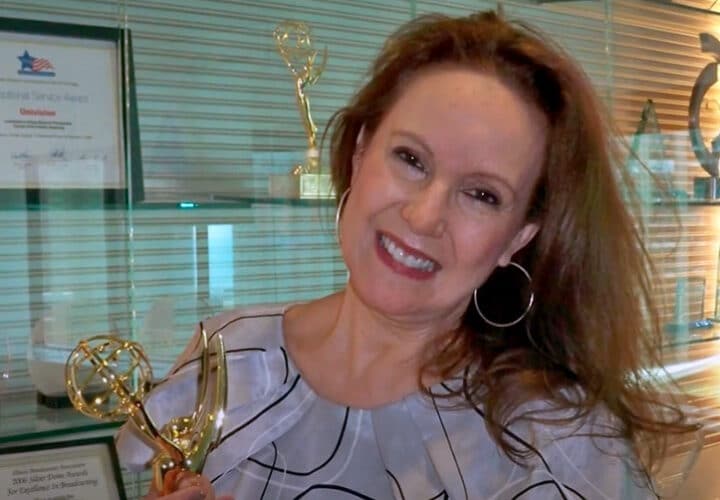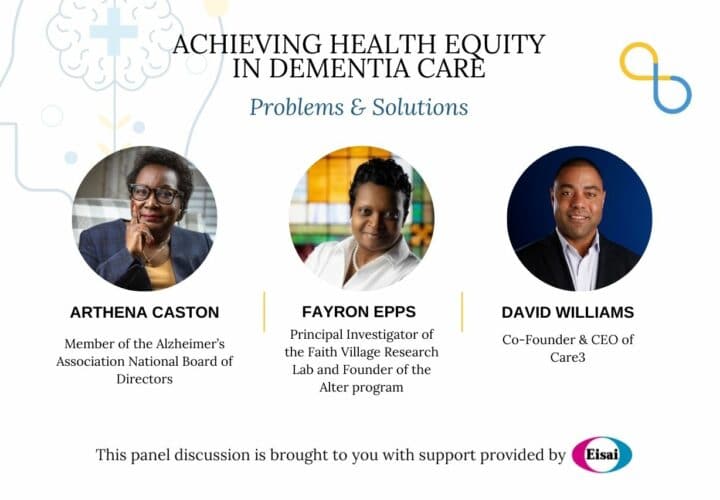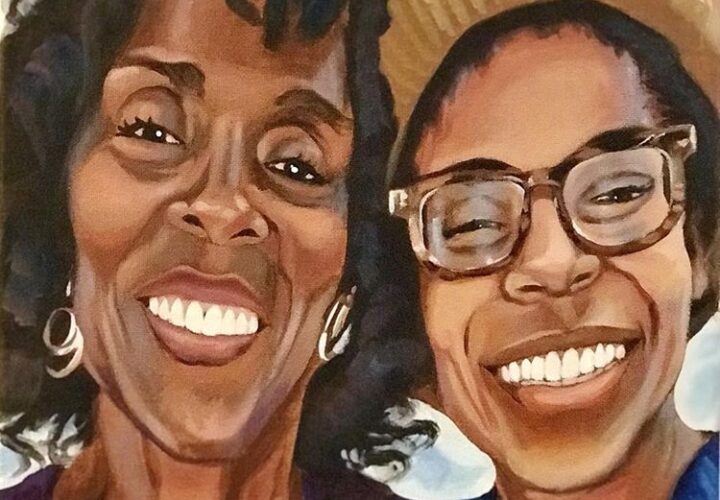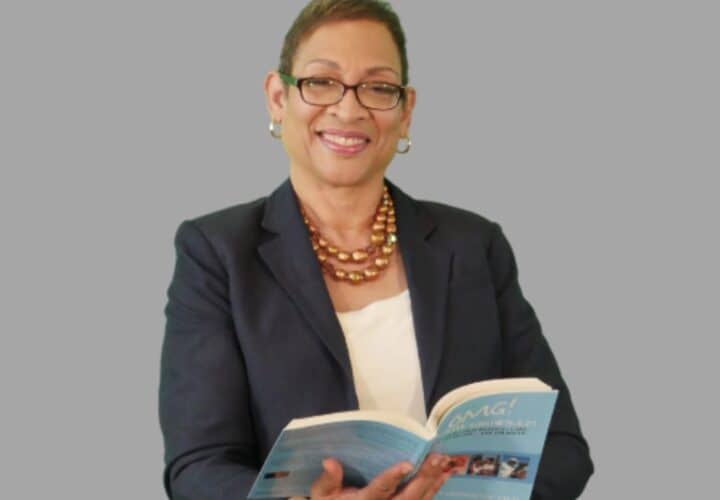Luisa Echevarria’s memories of leaving home during the Cuban Revolution prepared her for the challenge of caring for her mother. The experience led to a life-long career in Alzheimer’s advocacy.
This article is part of the series Diversity & Dementia, produced by Being Patient with support provided by Eisai. Image: Luisa Echevarria at the MALDEF Chicago Awards Gala, 2012.
Luisa Echevarria sensed something was off with her grandmother, Maria Luisa Florin, shortly after the family matriarch arrived in La Grange, Illinois in 1965. Echevarria, then 14 years old, had been living in the Chicago suburb for five years after becoming one of the first in her family to leave their hometown of Matanzas, Cuba during the Cuban Revolution in 1959.
At nine years old, Echevarria boarded a plane out of Cuba to stay with relatives in the Chicago area. The flight was filled with other young children who were crying or scared because they were leaving parents or grandparents behind on the island, as Echevarria was, but when Echevarria boarded, she recalls, her experience was different: “I got on there, like, ‘I can do this,’” she told Being Patient. That strength was something she would call on again many times in her life.
As the eldest grandchild, Echevarria was close to her maternal grandmother at home in Cuba, and she was thrilled by the chance to be able to live with her again in the United States after years of being separated. Since both of Echevarria’s parents worked, the teen spent hours alone with her grandmother in their new home in Illinois. But quickly, she began to notice her grandmother’s personality had changed in the time that they had been apart.
Florin was repeating herself and frequently becoming agitated over things Echevarria considered trivial, like the volume of the family’s radio, and what she wore outside of the house, once reprimanding Echevarria about her decision to wear cut-off shorts because, she argued, “Girls don’t go out like that.”
“I thought, ‘What is going on?’ This is not the grandmother that I knew,” Echevarria said. Eventually, Echevarria’s mother explained to her that Florin had been diagnosed with arteriosclerosis, a build-up of cholesterol plaque in the veins that causes obstructed blood flow, and that doctors believed the condition was causing her memory loss and personality changes. In hindsight, her family realized, Echevarria’s grandmother had Alzheimer’s.
“I never heard the term Alzheimer’s in my early years,” Echevarria said. “People didn’t know what it was. They didn’t talk about it.”
Echevarria who now serves on the board of the Alzheimer’s Foundation of America. Slowly, she said, she sees this view of Alzheimer’s beginning to shift: “Back then, and even now, people see Alzheimer’s as a normal part of aging,” she said. “But it’s not. Alzheimer’s is a disease, and had we known it back then given her better healthcare, I think we could have definitely had a better outcome for my grandmother.”
Her grandmother’s struggle and her ultimate decline was Echevarria’s first personal experience with Alzheimer’s and, sadly, it would not be her last. Eventually, her mother developed and passed away from the illness. Echevarria had settled into a three-decade-long career at Univision, and it was caring for her mother during this time that compelled her to learn about the disease and, years later, inspired her to work in Alzheimer’s research and advocacy.
“I was on the lookout for my mother because there is a genetic component to [Alzheimer’s],” Echevarria said. “But Alzheimer’s takes you by surprise.”
She knew, however, just what was happening when her mother, then in her late 60s, suddenly shifted from being the bright, vivacious and positive person she had been known to be into someone who was frequently depressed.
“I started to see the exact same pattern that my grandmother had exhibited,” she said. Her mother, Nora Florin Echevarria, also began to become frequently agitated over “simple” things and started to repeat herself. As soon as Echevarria noticed these “slight” symptoms, she said, she set up an appointment with a neurologist at Northwestern Memorial Hospital and hunted for as much literature as she could find on Alzheimer’s. If Nora was going to develop the disease, Echevarria wanted to do everything in her power to fight against its progression.
It was tough for Echevarria to convince Nora to consider going to the doctor. Eventually, she got her mother to go under the pretext that the physician was actually a dermatologist who was going to speak with her about a new skin cream, a neurologist was able to diagnose her with Alzheimer’s after she was unable to answer questions about her birth year and about how to read a clock.
An only child, Echevarria took care of her mother with only the help of her father, Francisco Echevarria, who eventually moved to Miami to escape the harsh Chicago winters and be closer to friends and family. In Miami, Echevarria’s mother had better access to a Spanish-language adult daycare center — something that had been in short supply in La Grange. And eventually, when Echevarria and her father could no longer manage the caretaking on their own, Echevarria’s mother moved to an assisted living facility where Spanish was widely spoken. She passed away of Alzheimer’s at age 84.
Not long after, Echevarria, who worked in community relations at Univision, received an email at work from an Alzheimer’s nonprofit interested in partnering with the media outlet for a conference. She jumped at the idea given her history with the disease.
“We had no idea whether anybody would show up… We had over three hundred people show up for that conference,” said Echevarria. “It was remarkable to see the need for Spanish-language information regarding Alzheimer’s.”
This first step in Alzheimer’s advocacy was 15 years ago, and since, Echevarria has served on the Alzheimer’s Foundation of America’s Board of Directors, the board of Chicago’s El Valor organization, and has volunteered with many other service organizations targeting Latinos Chicago like Association House, Casa Central and Mujeres Latinos en Acción.
One of the most important things Echevarria has done in the fight against Alzheimer’s, she said, is taking part in an in-depth Alzheimer’s study — the Rush University Hospital Latino Core Study — which has tracked Latinos with a family history of Alzheimer’s but who have yet to show symptoms. Studies like this one, Echevarria knows, can help researchers better understand this illness, and hopefully one day soon, develop treatments to spare families the loss it causes.



